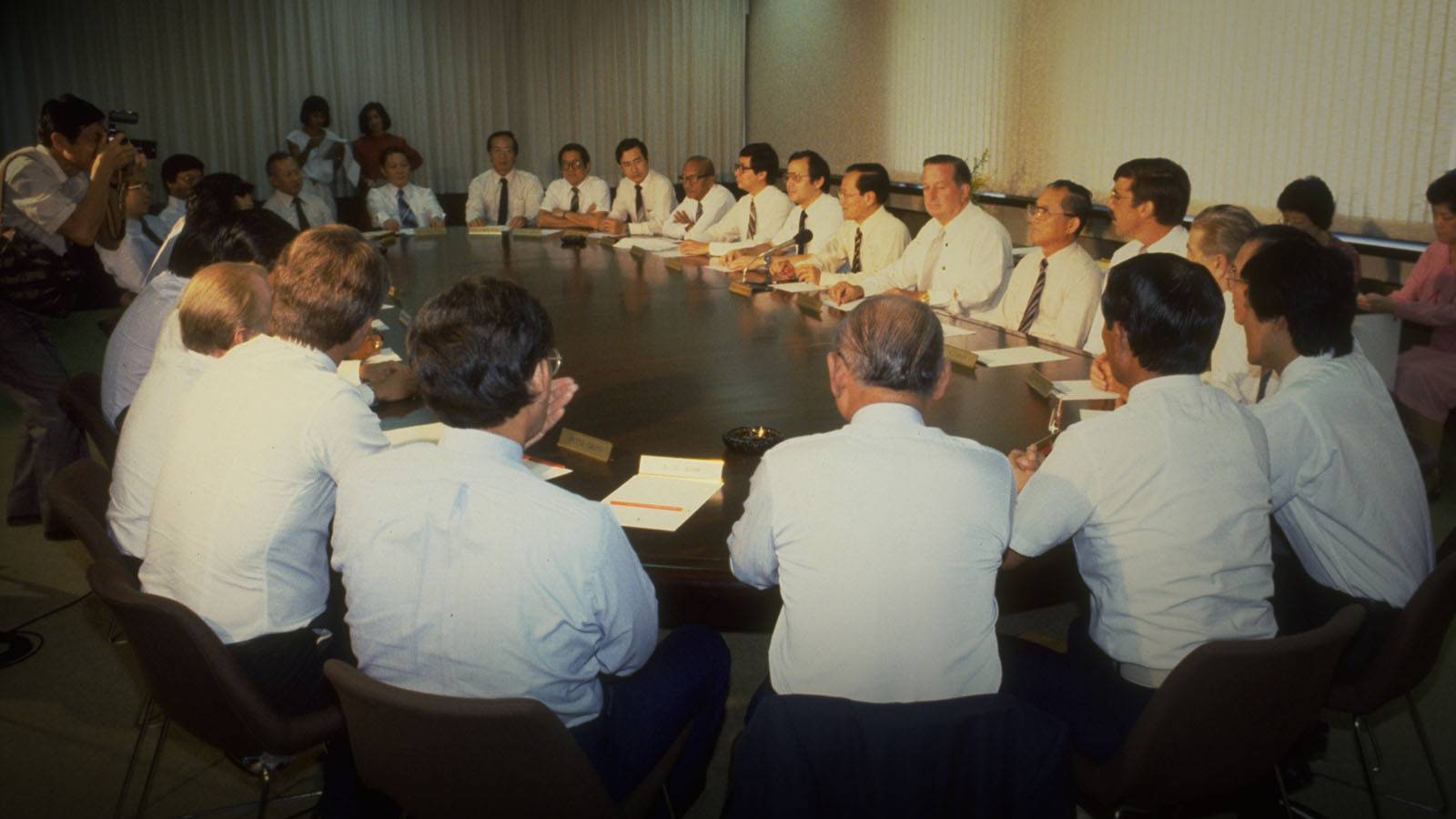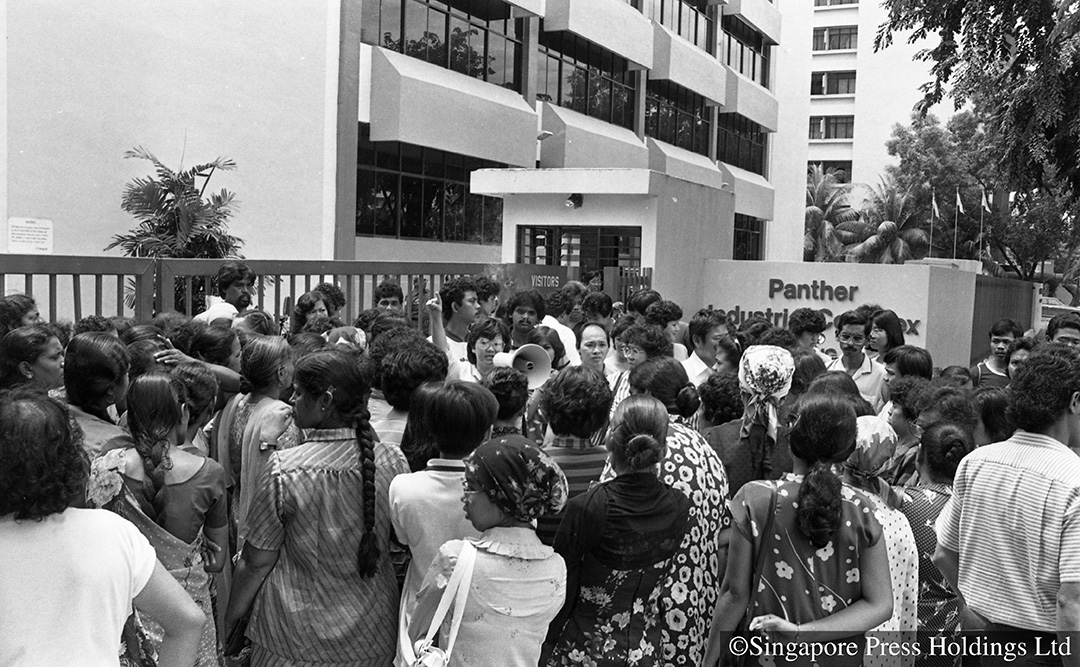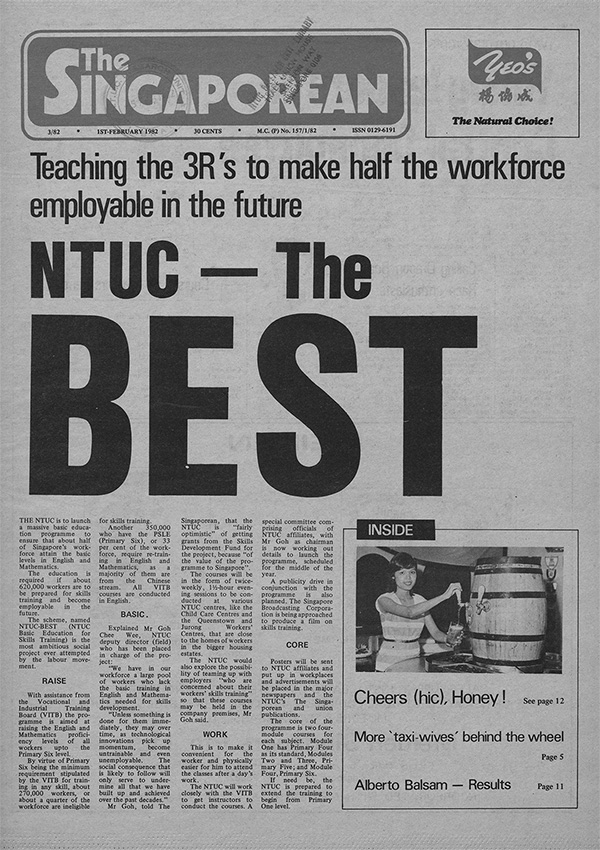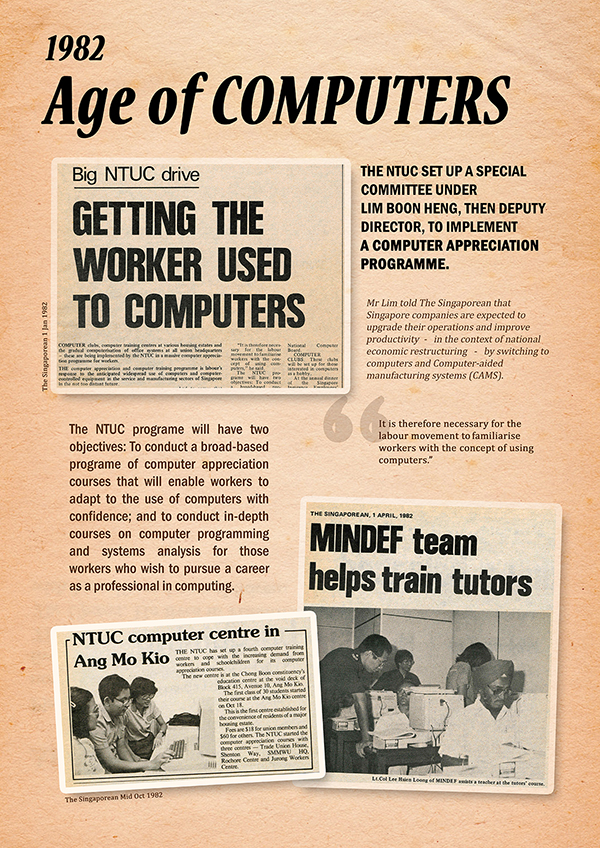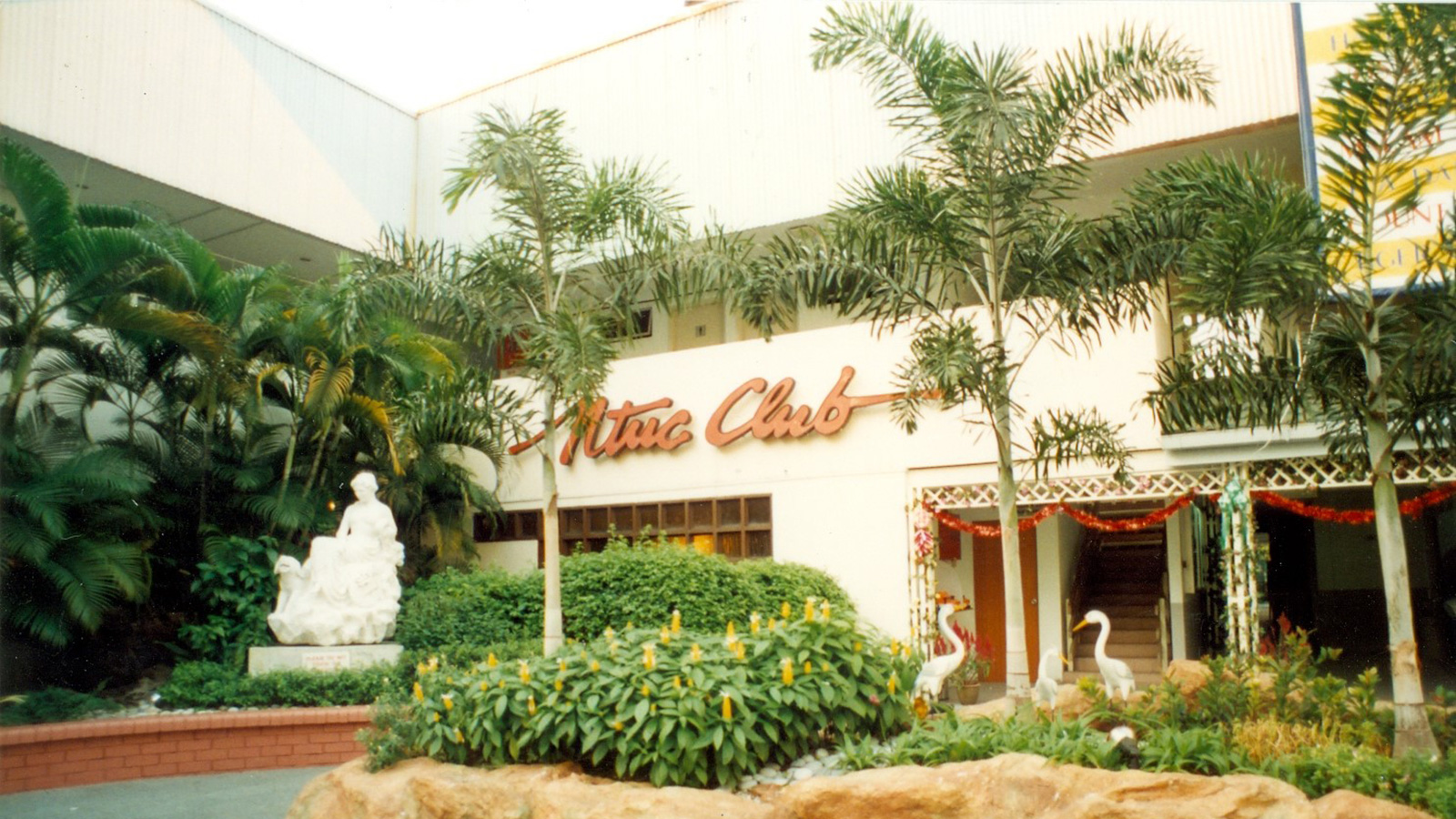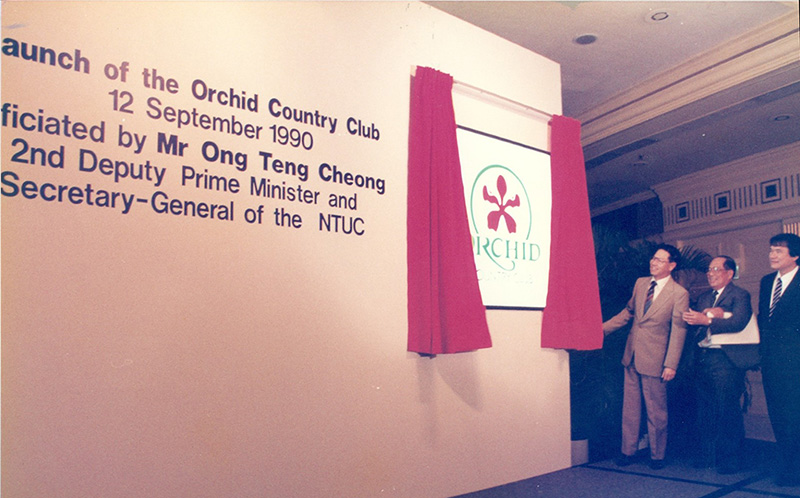The Labour Movement’s first post-independence test was during the 1985 economic recession when the tripartite Economic Committee recommended wage freezes and reduction in CPF contributions. The NTUC supported this to keep workers in their jobs.
Singapore’s economy had done well between the 1960s and the 1980s despite the shocks of the British pull-out in 1971 and the OPEC oil embargo. However, Singapore suffered its first post-independence recession in 1985. Internal and external factors were responsible for the recession, but it was serious enough for the Government to appoint a tripartite Economic Committee to assess the economy and chart new directions for growth. The recession also proved to be an important stress test for tripartism. Wages had to be kept low to keep the cost of business down. The NTUC agreed to forgo wage adjustments recommended by the National Wages Council. At the same time, it accepted a 15-percentage point reduction in employers’ contribution to the employees’ Central Provident Fund.
That the NTUC and its affiliated unions could mobilise workers to accept those painful decisions showed the deep trust workers had in the Labour Movement.
Beyond wage adjustments, the NTUC also embarked on programmes to retrain the workers. One of the earliest was the Basic Education and Skills Training (BEST) programme which was initiated in 1982 to provide classes for workers who had less than a Primary Six education. Over the years, other skills programmes have been implemented, including the Worker Improvement through Secondary Education (WISE); the Critical Enabling Skills Training (CREST); and the Skills Redevelopment Programme (SRP). Funds have also been made available for training through the NTUC’s Education and Training Fund.

